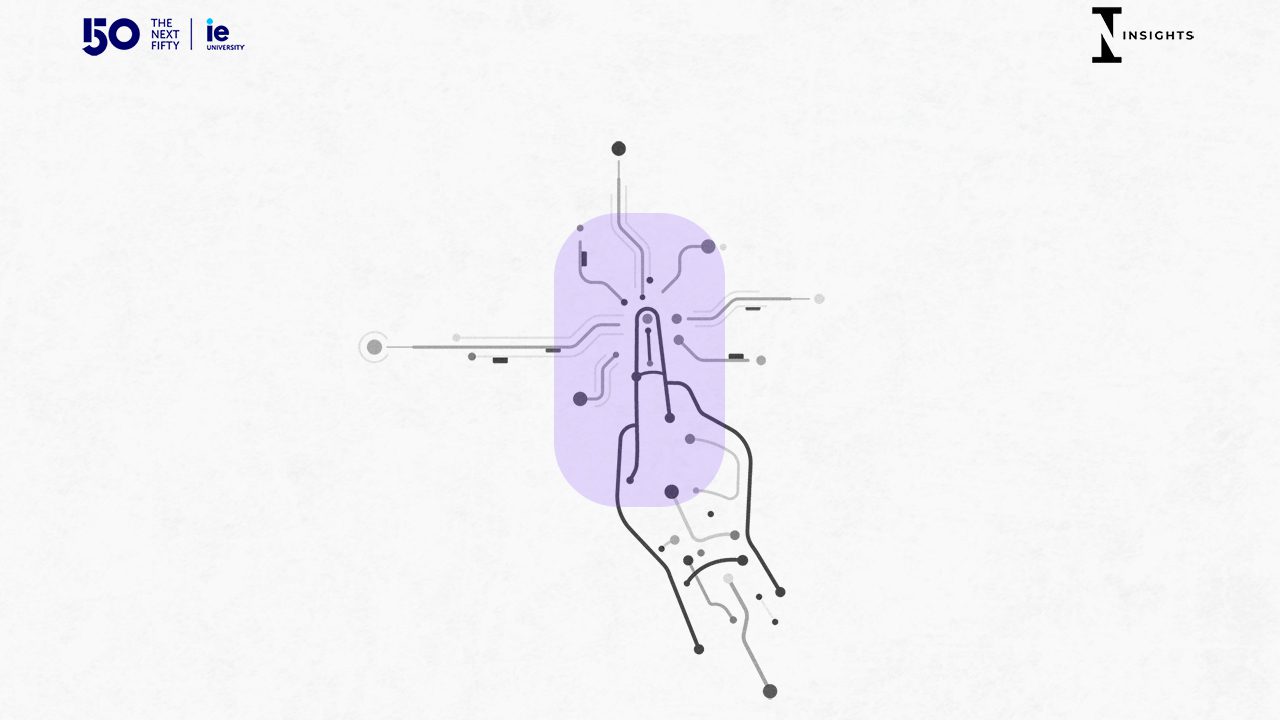Link copied
IE insights - IDEAS TO SHAPE THE FUTURE - Creativity

AI and the Future of Human Innovation
AI will see workers change their relationship with knowledge itself.
Most companies depend on continuous innovation to grow and stay relevant. Now with the advent of GenAI, many are left wondering how it can assist companies with contributions that have been firmly the domain of knowledge workers. I’m referring to idea generation, problem solving, complex reasoning, and decision making.
Knowledge work will evolve radically – and there is a place for humans to thrive within it. I’d like to offer a vision for this future.
To understand what that looks like, consider the notion of upstream work. In my leadership roles at Amazon and later in the C-suite of McDonald’s and Volvo, I’ve pursued innovation relentlessly and have found excellence at “upstream” work to be the best indicator of success when it comes to realizing the promise of bright ideas. This involves exploring and addressing unknowns before drawing conclusions, making decisions, and taking action. Unknowns describe the upstream world. Anything new and meaningful that a team is trying to create or solve will start with unknowns. Exploring unknowns, aligning the information gathered, and making decisions based on that information should not be left to chance and personalities.
But most organizations lack a method for it. In 25 years of business, I have never encountered a systematic way to deal with unknowns. Yet they are the common characteristic of any big bet, innovation, strategic initiative, or new growth opportunity.
To handle all aspects of upstream work, I’ve invented Decision Sprint, with detailed workflows that guide teams from the early stage of an idea down to specific actions to decide upon. One of the first steps is sourcing questions to explore. Let’s say you have a problem statement and there’s a period of time to collect questions from team members, so that an exploration can cover all the important considerations.
GenAI has the potential to speed up this kind of learning activity by raising important questions and subject matters to consider that would help your organization design better solutions, manage risk and reduce surprises. In the not-so-distant future, it will take the outputs of exploration – like answers to questions – and compose strategic business documents and critique those we write in the same way executives review the work of their teams.
But here’s the rub: it requires continuous input from human intelligence. By its nature, innovation has no precedent, no case studies to reference. And every company operates within unique circumstances like regulation, financial envelopes, business models, and technology environments. Prompting a public repository of knowledge through GenAI will likely produce limited value. Generic knowledge will not help accelerate innovation, but bringing out the intelligence of people within an organization – and asking AI what’s missing is more likely to produce benefits. That’s why it makes more sense to mobilize people to answer key questions, and later prompt AI for what’s missing. AI is helpful when we point it in the right direction.
When enough is understood about these unknowns through the work of exploration, teams move on to draw conclusions, set direction, and decide on actions. Teams may be presenting their findings and recommendations to executive sponsors. Humans may narrow in on some obvious or core recommendations but there may be more to it. Here’s where AI can help suggest recommendations on key actions and make them more complete.
When it comes to decisions, AI can help us score confidence levels for each recommendation. It will do so based on the questions and answers produced by humans on which any given recommendation stands. AI can qualitatively and quantitatively evaluate the substance and tone of what’s written to provide confidence and risk levels. With feedback loops, the precision of these scores will improve. Organizations can tap AI to speed up every step of the upstream work process, provided humans are the backbone of the workflow.
I’m an optimist when it comes to the future of knowledge work. Certainly, knowledge workers will have to up their game and, when companies employ AI, will have to change their relationship with knowledge itself. They will have to measure themselves on how valuable their contributions are to growing the knowledge companies need for meaningful innovation.
The best way to get started is to recognize the need for upstream work, and a way to navigate it, adding AI to take velocity to the next level. This will define the Second Information Age for companies, where knowledge workers will thrive with AI as a companion.
If you think today’s business environment is moving quickly, buckle up. Looking out 10 and 20 years from now, today’s fast-moving companies will seem like they moved at a snail’s pace.
© IE Insights.
